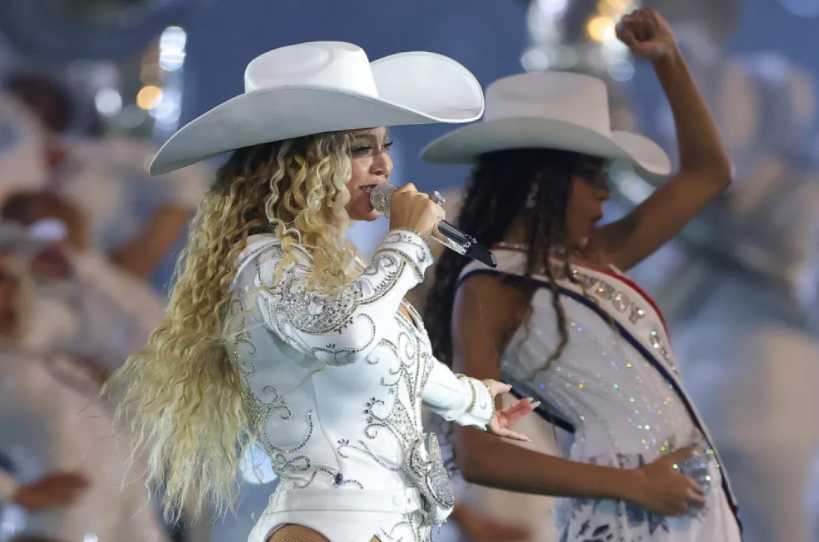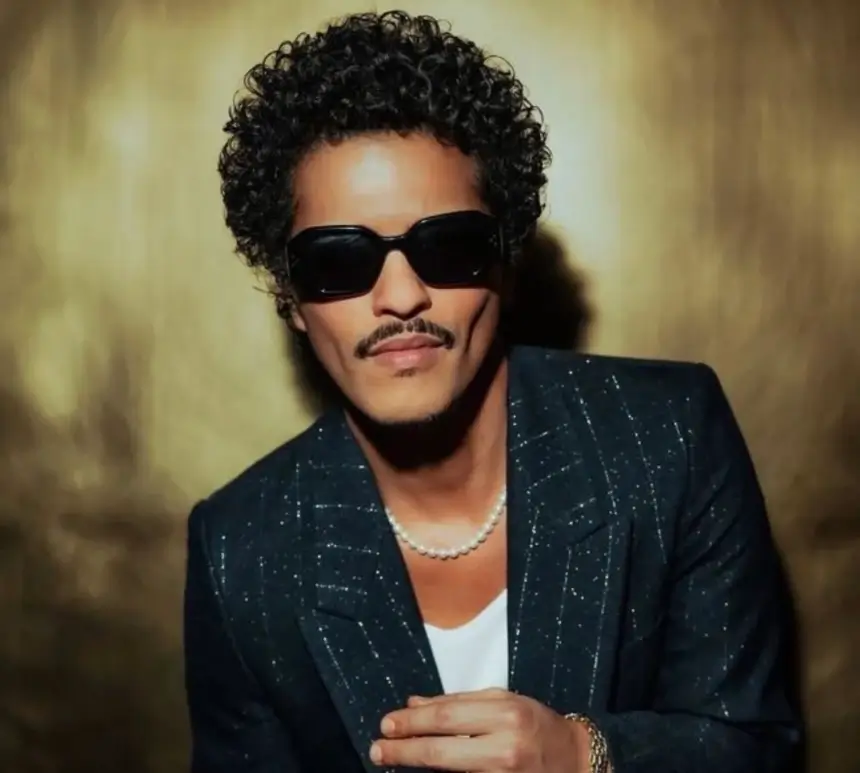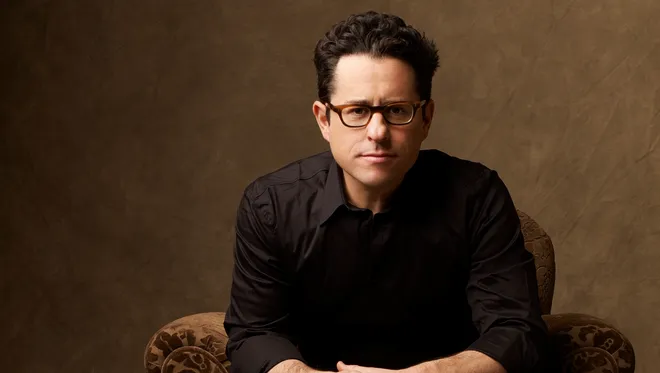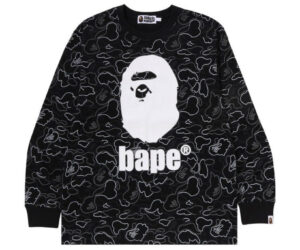When Beyoncé steps onto a stage, it’s never just a performance. It’s a world-building event, a cultural landmark, a shared reckoning. On April 27, 2025, at Los Angeles’ SoFi Stadium, she unveiled the live experience of her groundbreaking album Cowboy Carter, delivering a night that was as much a celebration of reinvention as it was a testament to her boundless command over music, image, and myth. The tour opener didn’t just live up to the enormous expectations surrounding Cowboy Carter—it redefined them.
Here is a detailed, comprehensive reflection on every song played and the vivid narrative arc Beyoncé spun across her ambitious set list.
Setting the Stage: The Opening Vignette
The evening began not with a bang but a slow, stirring sweep. A large projection of an open prairie bathed the stadium in gold light, setting the tone for a concert poised between nostalgia and futurism. As a steel guitar hummed under a slow-building instrumental overture, Beyoncé emerged—riding atop a custom chrome horse, cloaked in a glimmering leather ensemble that nodded equally to the American West and the Afrofuturist visions she has long championed.
Then, the music began.
Roots and Reckoning
“American Requiem”
A hymn for lost dreams and shattered myths, “American Requiem” opened the show. Beyoncé’s voice, low and honeyed, filled the cavernous stadium with a call for reckoning—a perfect invocation for the evening.
“16 Carriages”
Rolling seamlessly into “16 Carriages,” the performance was accompanied by a slow parade of dancers in chaps and long trench coats, staging a slow-motion rodeo that felt elegiac and powerful.
“Blackbiird”
In a rare moment of vulnerability, Beyoncé stood nearly alone onstage, accompanied only by an acoustic guitar. Her rendition of The Beatles’ “Blackbird,” recast in the language of Black endurance and hope, held the audience breathless.
Wild Horses, Wild Hearts
“Texas Hold ’Em”
The energy shifted dramatically as Beyoncé launched into her viral hit “Texas Hold ’Em.” With a dazzling line-dance sequence behind her, she turned the massive stadium into a neon-lit honky-tonk, complete with flashing signs and mechanical bulls.
“Bodyguard”
Gritty and driving, “Bodyguard” felt tailor-made for the stage, with Beyoncé trading her guitar for a mic stand and working every inch of the set with the presence of a rockstar in full command.
“Jolene”
Her heavily discussed reinterpretation of Dolly Parton’s “Jolene” arrived midway through the second act. Beyoncé delivered it with a fierceness that reimagined the song not as a plea, but as a warning.
“Levii’s Jeans” (with Post Malone guest appearance)
In a surprise moment, Post Malone joined her onstage for “Levii’s Jeans.” The chemistry was easy, playful, and subtly subversive—hip-hop’s cowboy and its queen weaving genres into something startlingly fresh.
Dust and Stardust
“Daughter”
Shifting into more intimate territory, “Daughter” was introduced with archival footage of Beyoncé’s childhood in Texas. The performance that followed was intimate and wounded, with sparse lighting spotlighting her emotional delivery.
“II Most Wanted”
The high-octane “II Most Wanted” showcased Beyoncé at her most kinetic. Backed by pyrotechnics and choreographed horse imagery, the number was pure Western outlaw fantasy.
“Smoke Hour”
Bluesy and languid, “Smoke Hour” offered a moment of smoky-eyed swagger. Beyoncé performed it seated on a velvet saloon bench, channeling an old-soul siren.
Act IV: Cosmic Prairie
“Spaghetti”
Here, the stage transformed again—this time into a surreal desertscape under a violet sky. “Spaghetti,” with its sharp rap verses and twangy hooks, was an audacious flex of genre mastery.
“Ya Ya”
An electrifying gospel-country hybrid, “Ya Ya” had Beyoncé and her backing vocalists marching down a catwalk in matching leather and fringe. The entire crowd clapped and stomped along, a communal eruption.
“Tyrant”
With flashing images of Black cowboys projected behind her, “Tyrant” became a searing statement about history, ownership, and self-definition.
“The Linda Martell Interlude”
Though not a full song, the interlude paying homage to country pioneer Linda Martell was a striking moment of historical reverence. Beyoncé has often insisted on platforming forgotten Black pioneers—and here, she let their presence breathe through the production.
The New Americana
“Desert Eagle”
Returning to the gun-slinging motifs of the frontier, “Desert Eagle” was a swaggering anthem complete with cinematic shootout choreography.
“Sweet Honey Buckin’”
One of the more playful moments, “Sweet Honey Buckin’” felt like a barn dance set in a neon dreamscape, pulling influences from New Orleans bounce, Texas blues, and Nashville twang.
“Protector”
Quiet, raw, and vulnerable, Beyoncé sang “Protector” as archival footage of her children played behind her. It was a potent reminder of the personal stakes embedded within the sprawling themes of Cowboy Carter.
“Ameriican Requiem (Reprise)”
Bringing the night full circle, she returned to “Ameriican Requiem,” this time letting the audience sing the chorus back to her—a gesture of collective catharsis.
Encore: A New Dawn
“Just For Fun”
As the stage lifted into the air, forming a star-shaped platform, Beyoncé floated above the audience to perform “Just For Fun.” It was part-joyous, part-reflective, capturing her vision of freedom: hard-won, but radiant.
“Cowboy Carter Medley (Finale)”
Finally, she stitched together pieces of “16 Carriages,” “Bodyguard,” and “Texas Hold ‘Em” in a medley, riding her chrome horse into a literal simulated sunset.
Final Reflections
Beyoncé’s opening night for Cowboy Carter was more than a concert—it was a reclamation and a redefinition of Americana itself. In typical Beyoncé fashion, she honored her predecessors, amplified the forgotten, and boldly imagined a future where the line between country, soul, pop, and rap disappears entirely.
Through the structure of her set list, she told a larger American story: one of displacement, perseverance, celebration, and radical belonging. And as thousands sang and stomped along under the Los Angeles sky, it was clear that Cowboy Carter wasn’t just an album being performed—it was a new chapter in the mythology of American music itself.
No comments yet.








